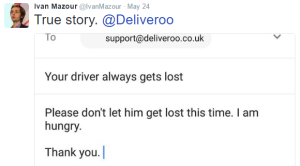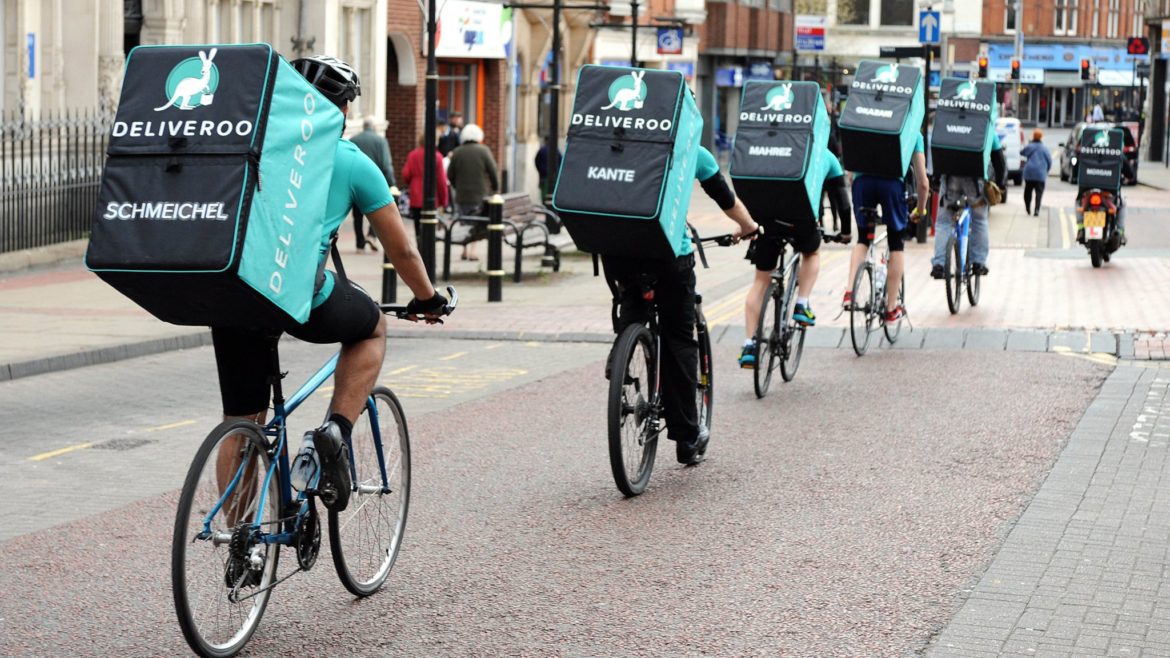 Last Saturday I went to a meetup. It’s not how I typically spend my Saturday nights – usually it’s a toss-up between something social that my wife wants to do, and the latest computer game that I want to play. But this meetup was something I couldn’t miss. It was called Wait But Hi, and organised by one of my favourite blogs – Wait But Why – as a global event, with thousands of people around the world being selected out of tens of thousands of applicants, to come together and discuss topics which were visionary. All talk of work was banned. It was great.
Last Saturday I went to a meetup. It’s not how I typically spend my Saturday nights – usually it’s a toss-up between something social that my wife wants to do, and the latest computer game that I want to play. But this meetup was something I couldn’t miss. It was called Wait But Hi, and organised by one of my favourite blogs – Wait But Why – as a global event, with thousands of people around the world being selected out of tens of thousands of applicants, to come together and discuss topics which were visionary. All talk of work was banned. It was great.
I met some amazing people. From a neuroscientist, to someone applying machine learnings to pricing art, to someone who had been shot in the face and survived. It was in equal parts fascinating and humbling. We covered everything from artificial intelligence to cryogenics. And at one point we actually ended up merging the ideas of abundance, communism and space exploration to consider what a hypothetical society that revolved around all three of those would be like.
Not so far away from where these conversations took place, and only a few days afterwards, Deliveroo drivers gathered outside their main office, protesting a new pay structure – one which would remove any guaranteed pay and potentially lead to them making almost nothing during quiet periods. And as I read all of the related articles, I couldn’t help drawing a parallel between what was happening with Deliveroo and that hypothetical society we had talked about on the weekend.
Ever since my first Deliveroo experience two years ago, I have become hooked. I’ve just checked my Deliveroo account and this year I have ordered 132 times. That means I have had Deliveroo on more days than I’ve not had it. Whereas my go-to staple used to be oven chicken – I’d come home, stick the oven on 200 degrees, put in a fillet of chicken and some vegetables, spray it with olive oil, and eat it all 20 minutes later – now my staple is Deliveroo. Order on the way home, eat it when I arrive. If my wife is at home for dinner, we’ll Deliveroo for both of us. If I’m eating lunch in the office, I’ll Deliveroo to the desk.
Almost everyone I know is the same. I’ve had long discussions about this with various people, one of whom is even more of a Deliveroo fiend – he has ordered so much, Deliveroo mistook him for a business and gave him a corporate account. We all agree that it is so convenient and that the cost-benefit analysis simply makes sense. Sure, we can go out and get cheaper food, or cook ourselves, but the incremental difference in price is marginal compared to the time and hassle that is saved.
In our bubble world, the tech scene here in London, abundance already exists. We can get whatever we want, whenever we want. We push a button on a website, and some food arrives at our door later. There’s a human being in there somewhere, but we are abstracted so far away from them that most of the time, we just hope they aren’t late so our food isn’t cold. As soon as UberEATS came out, everyone I know switched immediately, for one simple reason – you don’t have to pay a delivery charge, or tip. Why would you not switch, when as far as you’re concerned there’s an app, a price, and some food that appears.
But this isn’t the real world. In the real world abundance doesn’t exist. What exists is a clear separation. People whose income allows them to be Deliverees. And people who are the Deliveroos. The Deliveroos don’t come home in the evening and order themselves a Deliveroo. Or even an UberEATS. They go to sleep, and then they get up and they start delivering again. For the riders, Deliveroo is their job. It’s their lifeline. It’s how they pay their bills. A few years ago, the concept didn’t exist. It wasn’t an option. Then this company came along and promised the world. Ride a bike, get fit, have flexibility, get paid. What’s not to like? Riders signed up in their thousands.
But at the top level, I have no doubt that the leadership team of the company knew what the future looked like. And the future doesn’t feature riders. The ultimate conclusion of the abstraction is that the human being won’t even be involved. We’re almost there. Uber’s autonomous fleet arrives this month. See you later humans. If Deliveroo, or Uber, had been started ten years later, or if Google and Tesla had been ten years faster, there would be no protests. There would have been no Deliveroo riders in the first place. There would have been just an app, a price, and some food. Instead, promises were made – promises which by pure logic will have to be broken.
This week we had to implement a new rule across our sales team. Everyone would make twenty outbound calls a day, irrespective of seniority. No arguments, no complaints, just do it. And of course there were arguments and complaints. Deep down, everyone understood the reasons behind that rule being put in place. We need to build more pipeline, and making calls drives pipeline. It’s logical. But they still complained. There was a mini-revolution. Because it was different. It was change. The mistake was mine. Had we started with that as a core foundation of the sales team – had every single person we hired come into the organisation expecting that, there would be no complaints. There would be no mini-revolution.
This is what the world is about to experience, on a much bigger scale. And it’s going to be bad. The entire on-demand economy is going to implode. “Salaries” are going to drop – Uber went from fixed to per-ride. Deliveroo is going from fixed to per-delivery. And it’s only going to get lower. Until finally, human beings are removed entirely. Sure, the government can try to Atlas Shrug it up, but you can’t fight entropy, and however much legislation you put in place, you can’t fight the fact that the Deliveroos are an unfortunate, temporary and redundant part of the ultimate equation.
But just like my sales team, they were sold a vision, and had expectations set for them. And now they find themselves with the rules of the game being changed under them, and with no control over it. Of course they’re going to protest. The problem is, unlike my sales team, for them it’s only going to get worse. And the inevitable revolution is going to be a hell of a lot bigger.
----Find out more on the about Ivan Mazour page.
And watch Ivan Mazour's TEDx Talk - "Why we shouldn't be scared of sharing our personal data".


3 comments
It does feel as if the wave is getting steeper and we who want to *cause* change have to keep paddling hard. Otherwise the wave breaks, and we get change *done to us*, and that feels much worse. The line is pretty thin. I think it’s natural, inevitable, and logical, as you have said. Keep paddling …
Nice… ‘the government can try to Atlas Shrug it up’.
When I was a motorcycle despatch-rider more than 20 years, us, the rider-humans, were in complete control. Because most of us were mad and were paid by the job, the amount of work that controllers had to handle was impossible without the crazies.
As for price-points, they came down one summer when I think just one Brazilian came over to London, made a fortune on a motorbike/bike, told his mates and the following summer, there were hundreds of Brazilians that disrupted the market and ended the power of the riders.
As you rightly say, this type of thing was the beginning of an upcoming and fast end.
I found this blog post thought provoking. thanks Ivan.
It led me to http://waitbutwhy.com which led me to which led me to http://waitbutwhy.com/2016/11/its-going-to-be-okay.html
(which I sadly don’t agree with – but at least made me think)
and led me to this
http://www.ted.com/talks/tim_urban_inside_the_mind_of_a_master_procrastinator
which I loved, and led me to get back to work, after putting this
http://theartofcharm.com/podcast-episodes/tim-urban-wait-but-why-episode-522
on my “to do” list
greetings from Krakow